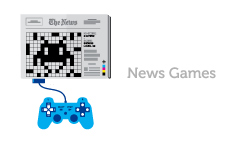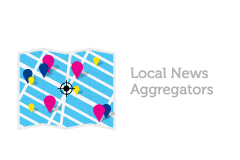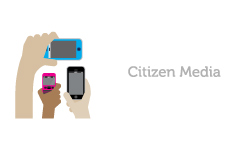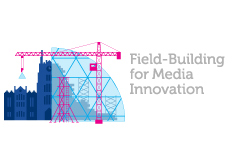Download The Main Report
Knight News Challenge Year 1 and 2 Cross-Cutting Report.pdf (PDF)
Detailed Cluster Reports:

• Public Media Cluster (PDF)

• News Games Cluster (PDF

• Local News Projects Cluster (PDF)

• Citizen Media Cluster (PDF)

• Innovative Tools Cluster (PDF)

• Mobile News Platforms Cluster (PDF)

• Field Building Cluster (PDF)

The Knight News Challenge is a five-year media innovation contest designed to reward new ideas for gathering, sharing and using local news and information. Knight Foundation launched the contest in September 2006, at a time when the news industry was in great flux, as part of an effort to encourage greater experimentation in the field of journalism and media. To date, Knight Foundation has pledged nearly $22 million to four sets of annual contest winners in the search for bold community news and media experiments.
The News Challenge has three application rules. Projects must: 1) use innovative open-source digital technology; 2) distribute news in the public interest; and 3) be tested in a local community. The selection process was deliberately very broad as part of an effort to stimulate innovation in local media ecosystems and disruptive changes in philanthropic support of journalism. One important assumption underlies the challenge: innovation can come from anywhere: both new and established enterprises, the commercial and nonprofit sectors, as well as individuals.
Media innovation is fluid, characterized by an ever-changing stream of new technologies, ideas and products. Though the scene is shifting at an increasingly rapid rate, lessons learned still matter. In fact, they are crucial in helping to see the bigger picture. Thus, efforts to openly share interim results can be important. This report provides findings from the work of LFA Group: Learning for Action, an independent evaluation and strategy consulting firm.
This interim assessment focuses on the first two years of Knight News Challenge winners, 2007 and 2008, because sufficient time has elapsed since those grants were awarded for early measures of effectiveness and impact to be evaluated. During this period, Knight Foundation committed a total of $17 million to 31 winners across a range of project types and recipients.1 This interim report covers the key topics of grantee outcomes and effectiveness, the challenges they have faced and key areas of learning to be gleaned regarding media innovation. The review provides an analysis of each winner’s progress to date; in many cases, individual projects are still evolving as they continue to impact their targeted field and communities. The assessment contains insights that we hope funders, organizations, and individuals working on the future of news and information will find valuable.
The interim assessment comprises a cross-cutting overview as well as a series of seven cluster reports on different groups of 2007-2008 winners. These clusters have been created for analysis purposes only; they were not categories in the Knight News Challenge competition. We have grouped winners together, after the fact, to facilitate understanding of impact and to highlight key lessons that are actionable and relevant to others in the field.
The clusters are based on platform type and the approach winners employed, rather than by the types of targeted project outcomes.
This cross-cutting overview report includes:
I. and II. Profiles of Early Winners – providing a description of 2007-08 contest winners, their current project status and use of open source code.
III. Lessons Learned – summarizing the cross-cutting themes surfaced when examining project successes and challenges.
It is important to note that this interim assessment is part of an ongoing multi-year evaluation of the Knight News Challenge. In addition to this retrospective on early contest winners, Knight Foundation is partnering with Blueprint RD, an evaluation and strategy firm, to track the continuing progress of 2009, 2010 and soon to be announced 2011 winners (Appendix III contains a list of 2009 and 2010 winners). Part of this work involves helping winners improve their ability to measure their project outcomes. The findings from this formative evaluation also will be shared on a regular basis as results are gathered and analyzed.
Evaluating the Contest and “Innovation” LFA Group conducted research for this interim assessment in the spring of 2011. The methods for gathering data included:
• Review of project reports, including prior information collected by Blueprint RD consulting
• Review of project web sites and other available materials
• Key informant interviews with select winners, project partners and users, and field experts (see Appendix IV)
• Facilitated review and structured reflection with Knight Foundation staff
The contest has resulted in a range of impacts on the organizations that were awarded grants, the communities served by grantee projects, Knight Foundation, and the broad field of media and journalism. Each project and cluster of grantees can therefore be examined from many different perspectives.
From the perspective of Knight Foundation, the News Challenge as a whole has effected field-wide practices and behavior, created an important pipeline for foundation funding, injected positive energy into the sector, and helped shift focus onto particularly innovative strategies. This independent assessment, commissioned by Knight Foundation, focuses specifically on the outcomes of early individual News Challenge winners and the impact they each have had on the field and communities served by their projects. Funding innovation means embracing a level of risk that is arguably beyond the typical comfort-level threshold within philanthropy. With increased risk, however, comes the potential for significant returns, if even among a small percentage of investments. What rate of success might a funder reasonably expect supporting projects in the social sector? What are the implications for evaluating innovation in the social sector? What factors contribute to or detract from success? This assessment provides a starting point for discussing these questions.
One implication – indeed, a challenge – of evaluating innovative work in the social sector regards the need for respectful language for discussing what worked well and what did not. As Knight Foundation notes, these were experiments; results were never guaranteed. In this review, the LFA Group team examined the projects in terms of the outcomes they have achieved in their targeted communities, their influence on the field of journalism and media, as well as their contribution to learning. This framework is offered in the spirit of advancing a positive and constructive dialogue regarding the efforts of those who undertake innovative projects such as those funded through the Knight News Challenge.
